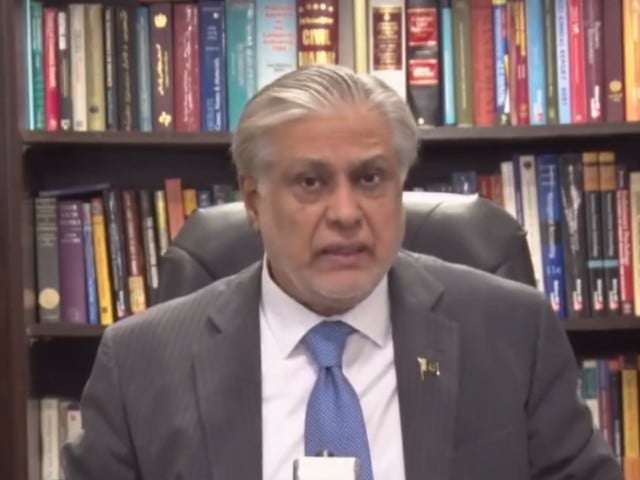
|
Getting your Trinity Audio player ready...
|
Islamabad: Deputy Prime Minister and Federal Minister for Foreign Affairs, Ishaq Dar, has underscored the importance of a robust competition framework in fostering economic growth, promoting innovation, and attracting both domestic and foreign investment. His remarks came during a meeting with Dr. Kabir Sidhu, Chairman of the Competition Commission of Pakistan (CCP), who briefed him on the Commission’s ongoing efforts to enhance its effectiveness in enforcing competition laws and addressing market manipulation.
Competition Laws: A Pillar for Economic Growth
The Role of Competition Laws in Fostering Economic Progress
A sound competition policy is essential for maintaining fair market practices and ensuring that businesses operate in an environment where competition thrives. Ishaq Dar emphasized that effective competition laws are not only vital for protecting consumers but also crucial for driving long-term economic growth. When competition is allowed to flourish, businesses are motivated to innovate, improve products, and offer competitive prices, which directly benefits consumers and the economy as a whole. Furthermore, a transparent and fair competition environment is key to attracting both local and international investors.
The Need for Stronger Enforcement
Ishaq Dar called for the strengthening of enforcement mechanisms to combat anti-competitive behavior, particularly cartels and market manipulation, which hinder fair competition and damage consumer welfare. The government is committed to supporting the Competition Commission of Pakistan (CCP) in its efforts to monitor market practices and ensure that businesses adhere to ethical practices. He also emphasized that addressing market distortions is essential to ensuring that businesses in Pakistan are not operating in a manner that is detrimental to consumers or the broader economy.
Key Initiatives by the CCP to Strengthen Competition Framework
Proactive Approach in Tackling Cartels and Market Abuse
Dr. Kabir Sidhu provided an overview of the initiatives undertaken by the CCP to enhance its role in maintaining competition. The Commission’s primary focus has been on tackling cartels, price manipulation, and market abuse. Cartels, which are agreements between businesses to set prices or limit supply, distort competition and harm consumers by keeping prices artificially high.
The CCP’s proactive approach aims to identify these illegal practices at the earliest stages and take swift action. Dr. Sidhu explained that the Commission’s efforts have been geared towards identifying and breaking up cartels that exploit consumers, as well as preventing market abuse by businesses that hold dominant positions in their respective industries. These efforts are critical to creating a level playing field for businesses of all sizes, particularly SMEs, and ensuring fair competition.
Establishment of the Market Intelligence Unit
One of the most significant advancements in the CCP’s efforts is the establishment of the Market Intelligence Unit. This unit is tasked with monitoring market trends and identifying anti-competitive behaviors, such as price manipulation, cartel formation, and other unfair business practices. Since its inception, the unit has employed advanced data analysis techniques and media monitoring tools to track suspicious activities in the market.
In the past year alone, the Market Intelligence Unit has identified over 150 cases of potential market abuse and anti-competitive behavior. This has enabled the CCP to take swift and decisive action to address these issues before they could escalate, helping to preserve fair market conditions and protect consumer interests.
Strengthening Litigation and Follow-up Actions
In addition to its efforts in monitoring and identifying market manipulations, the CCP has also worked on strengthening its litigation departments. This improvement ensures that the Commission can more effectively follow up on court cases and secure penalties for businesses found guilty of anti-competitive practices. Over the last 12 months, the CCP has successfully resolved 69 cases, recovering penalties worth Rs100 million.
This proactive approach not only serves as a deterrent for businesses considering anti-competitive actions but also reinforces the importance of adhering to fair competition principles. The government’s support of the CCP’s litigation efforts plays a critical role in ensuring that penalties are effectively enforced and that businesses are held accountable for their actions.
Future Directions: The Centre of Excellence
Promoting Research and Collaboration
In a bid to further enhance the effectiveness of competition law enforcement, the CCP is in the process of establishing a Centre of Excellence. This Centre will serve as a hub for research and scholarship focused on competition law and policy. By fostering a deeper understanding of market dynamics and the economic principles that underpin competition, the Centre of Excellence will contribute to the development of more effective strategies for tackling market distortions and promoting fair competition in Pakistan.
The Centre will also facilitate greater collaboration with both domestic and international academic institutions, enabling the CCP to stay abreast of global best practices in competition law enforcement. This collaboration is expected to strengthen the Commission’s capacity to monitor and regulate market behaviors more effectively.
Collaboration with International Bodies
The CCP’s efforts are not confined to national boundaries. The Commission is also working to build stronger relationships with international competition agencies and organizations. By participating in global forums and learning from international experiences, the CCP aims to adopt best practices and incorporate them into Pakistan’s competition framework. This collaboration will also help Pakistan align its competition laws with global standards, making the country more attractive to international investors.
Conclusion: A Comprehensive Strategy for Fair Market Practices
The need for a strong competition framework in Pakistan has never been more pressing. With rising concerns about cartelization, market manipulation, and abuse of market dominance, the Competition Commission of Pakistan has taken proactive measures to ensure that businesses operate in a fair and transparent environment. Through the establishment of the Market Intelligence Unit, the strengthening of litigation departments, and the creation of the Centre of Excellence, the CCP is taking significant steps to safeguard competition and protect consumers.
Deputy Prime Minister Ishaq Dar’s call for stronger competition laws and the government’s continued support for the CCP are vital to the success of these efforts. By fostering a competitive market environment, Pakistan can stimulate innovation, attract investment, and ensure long-term economic growth.
Frequently Asked Questions (FAQs)
1. Why are competition laws important for Pakistan’s economy? Competition laws are crucial for fostering fair market practices, promoting innovation, and ensuring that businesses can operate in a transparent and competitive environment, which ultimately benefits consumers and the economy.
2. What is the Market Intelligence Unit of the CCP? The Market Intelligence Unit is a newly established department within the CCP tasked with monitoring market trends and identifying anti-competitive behaviors such as price manipulation and cartel formation. The unit uses advanced data analysis and media monitoring tools to track and address market distortions.
3. How does the CCP enforce competition laws in Pakistan? The CCP enforces competition laws by investigating and taking action against cartels, market manipulation, and abuse of dominant market positions. The Commission also strengthens its litigation efforts to ensure penalties are imposed on violators.
4. What is the Centre of Excellence being established by the CCP? The Centre of Excellence will focus on promoting research and collaboration in competition law. It aims to enhance the Commission’s capacity by providing insights into global best practices and improving collaboration with domestic and international academic institutions.
5. How is the government supporting the CCP’s efforts? The government is providing continued support for the CCP’s efforts to enforce competition laws by strengthening its capacity, promoting policy reforms, and encouraging transparency and fairness in the market.
ALSO READ:
https://skipper.pk/2024/11/23/punjabs-economic-stability-a-key-to-national-growth/






